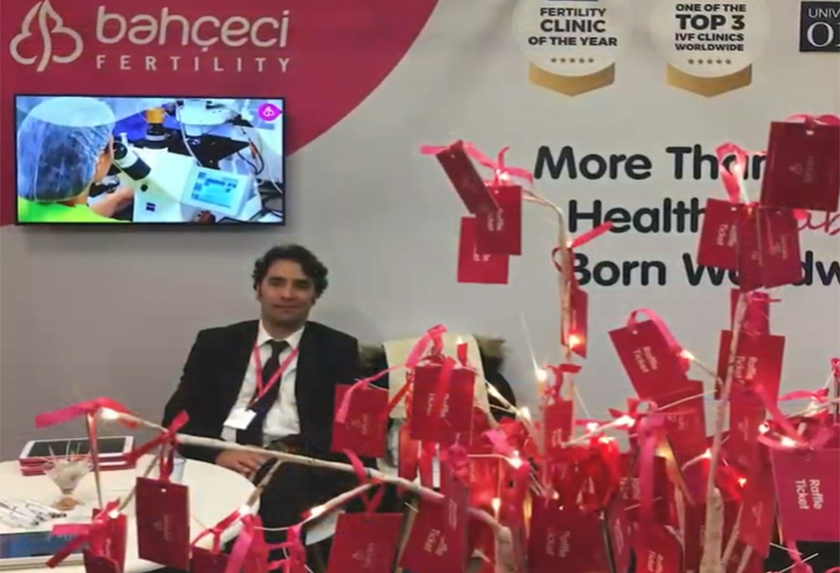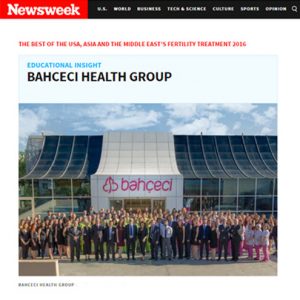Varicocele, which is one of the most common causes of male infertility, arises from the fact that the veins in the testes are unable to function properly. You can find here detailed information about varicocele, such as what it is exactly, what its symptoms are, and how it affects sperm count.
What is varicocele?
A varicocele is an enlargement of the veins within the loose bag of skin that holds the testes. 90% of varicocele cases occur in the left testis. It is thought that varicocele is more common in the left testicle because the left testis is exposed to more pressure and a relatively slower blood flow than the right one.
What are the symptoms of varicocele?
Mild varicocele may not have any symptoms; but over the years, varicocele may cause swelling and pain in the testes because of the progression of the enlargement of the veins. When standing for a long time and in hot weather, the vessels in the testicles become more visible and the discomfort increases. In advanced varicocele cases, the testis can soften and decrease in size. Varicocele is easily diagnosed through manual examination. It can also be diagnosed via ultrasound, which allows the examination of the vascular structure.
Does Varicocele Cause Infertility?
The heat in the outer bags, which protect the testicles, is usually a few degrees lower than body temperature. In other words, healthy sperm production requires an environment cooler than normal body temperature. Increased heat due to blood pooling inside the enlarged varicocele vessels adversely affects sperm production and may deteriorate sperm quality.
Besides an increase in heat, toxic substances that from the kidney and the adrenal glands may accumulate in the testes. Therefore, a decrease in sperm motility and quality might be observed.
Should Varicocele always be Treated?
Not all varicoceles need to be treated. If there are other causes to the decrease in sperm count, these causes should be determined and treated first. In addition, the treatment of varicocele in the case of azoospermia (zero sperm) remains controversial. The cause of azoospermia must be investigated, because usually, varicocele cannot be the only reason to lower sperm count to zero. Click here for more information about azoospermia.
How is Varicocelectomy Performed?
Varicocelectomy is a micro-surgical operation. The testis vessels are accessed through a 2 cm incision in the groin area. The use of a microscope under general or local anaesthesia during surgery allows a clearer identification of the vessels and helps prevent any damage to the artery feeding the testis. Under a microscope, the enlarged veins are cut off from other vessels. The surgery lasts 1 to 2.5 hours.
Microsurgical interventions have a high success rate, and a low rate of recurrence and complication. Varicocelectomy is an outpatient procedure. The patient is discharged on the same day and can go back to work within 2 to 3 days. After varicocelectomy, the patient experiences minimal discomfort.
Does Varicocelectomy Influence Sperm Count and Quality?
After the operation, the waiting period for sperm count to increase is 3-6 months. If sperm count and quality have not increased within 6 months, there is no point in waiting any longer. This improvement is observed in approximately 70% of men. The expected pregnancy rate within a year is around 40%. However, some men may not notice any improvement in sperm count and quality. In rare cases, sperm count and quality may decrease after surgery. This usually occurs with complications.
Can Varicocele Patients Have Children?
Treatment with assisted reproductive techniques may be recommended to men whose sperm count or quality has not improved within 6 months of varicocelectomy, and who cannot conceive naturally.
Men with low sperm count and motility may have a baby with IVF. When it comes to IVF, the choice of the centre to perform the treatment is of utmost importance. When selecting an IVF centre, attention should first be paid to the success rates of that centre, its technological infrastructure, and the expertise of its team. Bahçeci IVF Centre offers success rates above European standards with 24 years of experience and over 70,000 healthy IVF babies.
How much does varicocelectomy cost?
Due to the current legislation, we cannot publish our price information on our website. For more information on varicocelectomy, and for a free pre-consultation with our doctors, call us on +90 444 3 949.





